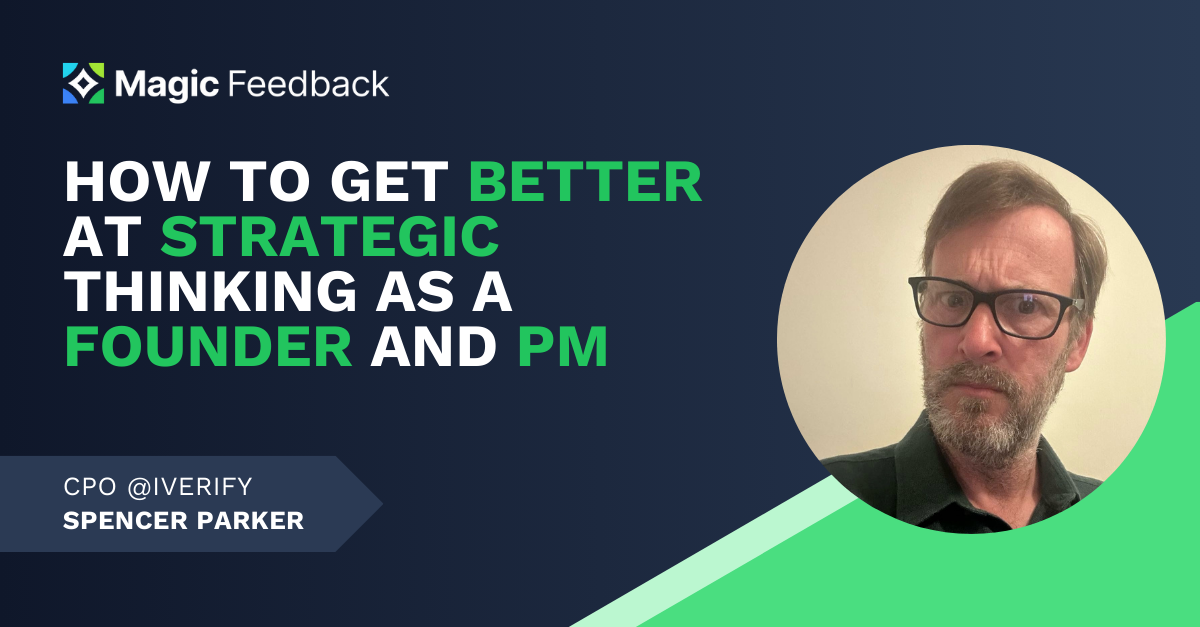
In this thought leadership article I sat down with Dimos Papadopoulos, a senior Product Manager in the entertainment industry, to discuss the role of the Product Manager. A career path that is never a straightforward one. At the same time, the day to day responsibilities of the experienced PM are complex ones. It’s a job that requires a special breed of multi discipline people. People who can hone the soft, collaborative skills as well as the hard ones. He shared with me some of the best advice he got, which helped him become the senior PM he is today.
In Dimos’ view, the role of the Product Manager is often complex and misunderstood.
“It’s such a challenging role. It’s because it’s often not super well defined and sometimes misunderstood by many organizations. At the same time you have so much pressure to actually contribute to the bottom line of a business. All this cross collaboration and skill set that it requires, which is very diverse, really puts a lot of pressure on the day-to-day.”
For him, the career trajectory of a Product Manager is not a straightforward one
“I really believe that most people in Product came into it somewhat accidentally. They started with something else and at some point discovered their passion for it, or eventually moved forward in the organization.”
What he finds that he and his peers have in common is especially the soft, foundational skills.
“We (product managers) did have a solid basis, so we were curious, we were always asking questions, we were listening to customers and to stakeholders, we were playing with products, we were analyzing products in our head etc. So I feel like all of us have a similar story in those skill set bases.”
These soft skills, this foundation, is something that he doesn’t believe can be taught. That being said, if a person has that solid foundation, they can develop their weak, blind spots to grow in their career.
“The soft skills, the weak, blind spots can be developed, they can be honed and get better as time passes. There is no way a product manager can be well versed in product, process and people. Marty Cagan is calling this the three P’s. Which I truly like because it gives structure.”
One key soft skill for the success of a PM is their listening skills. Early in his career Dimos received advice that has stayed with him to this day.
“One advice I received was to listen twice before speaking your mind or before committing. Listen without judging, without talking back to someone. At the same time, ask as many questions as required and then actually give your take.”
Listening also enables good PM’s to avoid the biggest pitfall – to work on something nobody needs or wants.
“To quote Peter Drucker, one of the great management consultants of all time, “There is nothing so useless as doing efficiently that which should not be done at all”. I paraphrase it, but actually the meaning was – when you are actually working on something in a very effective manner with a great plan you are delivering it, but it’s actually not needed, it’s not needed at all. I would always advise people to think about what the core must haves are. Think about not only in features and stories, but even in daily tasks. What actually is needed, where is your input needed and where are you expected.”
He stresses the importance of prioritization, for succeeding in a discipline, which is complex and challenging to its core.
“Prioritize ruthlessly, also prioritize your prioritization. So if you need to literally think about it even from the afternoon before or the morning. What you need to focus on, what absolutely needs your attention. I don’t feel like other disciplines have this kind of exposure to prioritization as PMs do. It is especially because we’re talking about varied tasks between different teams that cross collaboration.”
One actionable way he approaches prioritization, is to ask a tough question every time someone comes up with an idea.
“Whenever stakeholders bring something for prioritization I ask them – if it was your company, would you actually work on it, would you say that this is the next big thing. Oftentimes people don’t have actual answers”
His advice for those aspiring to enter the Product Management field is to not look into the rankings and the pay grade and the prestige. Instead go into it only if they know they would enjoy the core foundations of the role.
“I would advise people to truly get into it, only if they have a hard stomach for it, as we say in Greece. If they actually love solving challenges, being analytical, talking to people, solving things for people. That for me is very crucial for someone who loves the profession versus just doing it because they were given the opportunity to.”
Even those Product Managers, who have honed their soft skills. Who have worked on their blind spots, they still are facing the day to day challenge of leading and influencing without authority. It is the ability, and in the case of the PM, the necessity, to lead others, without having any direct power over them. When faced with a challenge Dimos always goes back to another advice he received early on in his career.
“Another advice that I received and use to this day is to understand the difference between influence, inspiration and leadership. There is a very clear distinction between the three different words. I feel like a lot of people get into product management because they feel like they’re going to boss people around. That they’re going to be only delegating and then people are expected to deliver out of magic.”
For him this advice was pivotal, because it helped him shed some illusions he had about the PM role.
That piece of advice was very crucial to me, because I understood that first of all, it’s an individual contributor type of role. Usually you don’t get to manage anybody, unless you are the head of the department which then means that you’re managing a few principles. So you actually have to showcase leadership skills, but at the same time, without managing anyone, without having direct reports and literally, you have to manage by purpose. By leading with a vision and inspire people day in day out”
In turn, what is one piece of advice you would like to give to other product managers and aspiring product managers?
“I would say keep on being curious right this is one core take. It sounds cheesy, but it’s actually true. You need to be curious about what the other teams are building, what are their KPIs, what are they trying to influence, and what is their core objective. It’s the only way to keep learning and developing and becoming better at what you do”


